Continuous website monitoring helps you ensure that your website is providing a good user experience and helps you meet your business goals.
We've reviewed some of the best website monitoring tools and what their respective strengths are.
1. DebugBear
DebugBear is a website monitoring tool that focuses on website performance and user experience. You can use it to measure and optimize page load time and Google Core Web Vitals metrics, and get alerted to any website regressions.
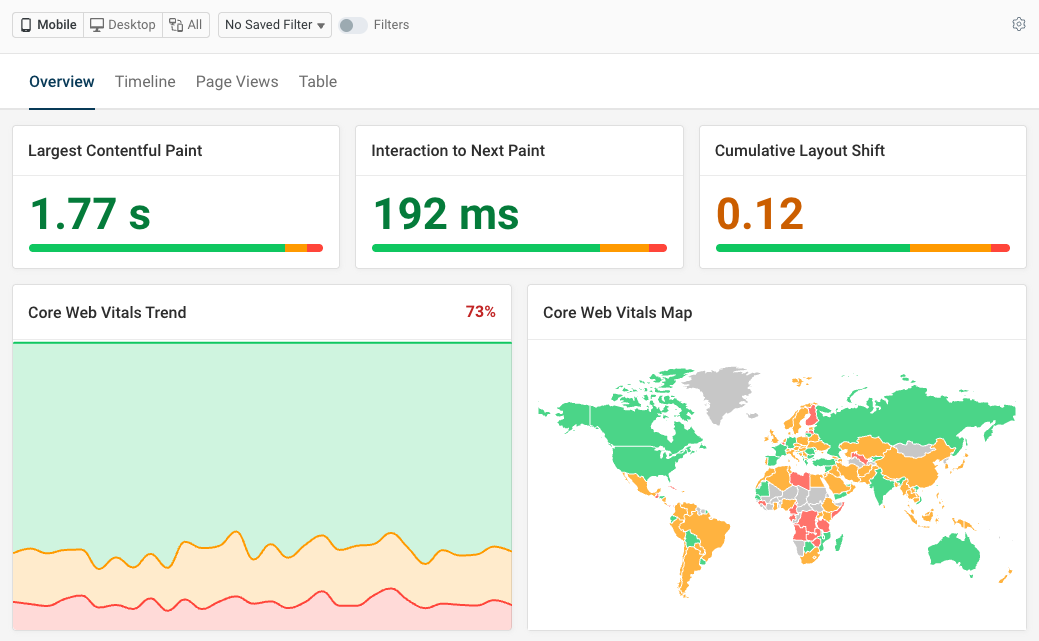
The product combines scheduled synthetic tests with real user analytics. You can also use it to benchmark your website against competitors using visitor data from Google's Chrome User Experience Report.
In addition to tracking high-level trends, DebugBear also provides in-depth technical reports that your development team can use to identify high-impact optimizations.
The experiments feature lets you try out performance optimizations and measure their metric impact quickly, without deploying any production code.
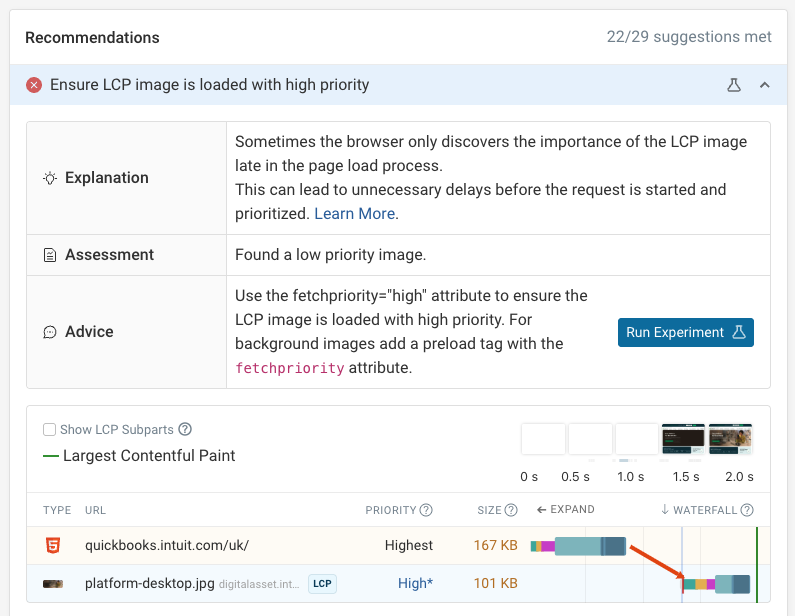
DebugBear also offers a free website speed test to run one-off checks on your website performance.
2. Pingdom
Pingdom is a website monitoring tool that covers uptime monitoring, performance monitoring, infrastructure monitoring, and more.
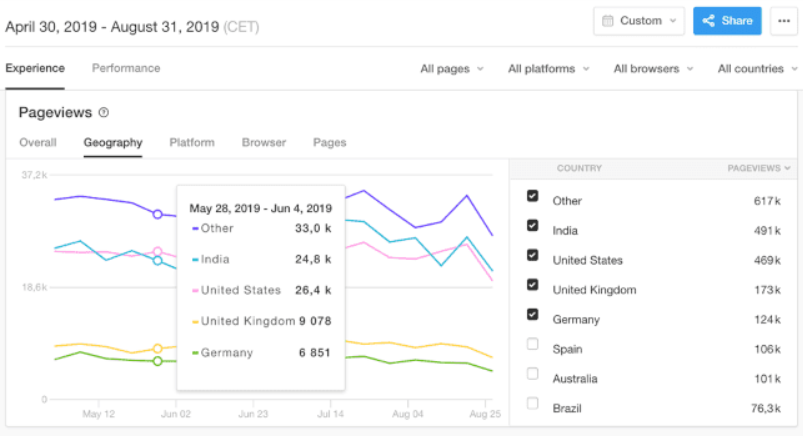
You can use Pingdom both to run synthetic tests and collect real user metrics from your website visitors.
3. Ahrefs
Ahrefs is an SEO tool that provides detailed monitoring of keyword ranking and estimated website traffic. Get weekly reports of your website's marketing performance and identify new content opportunities.
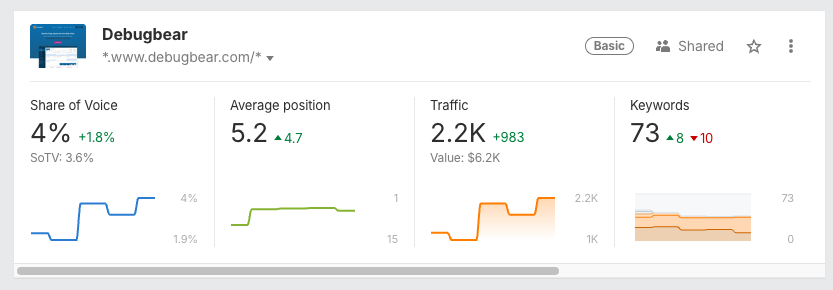
You can also research keyword volume data and see historical popularity trends.
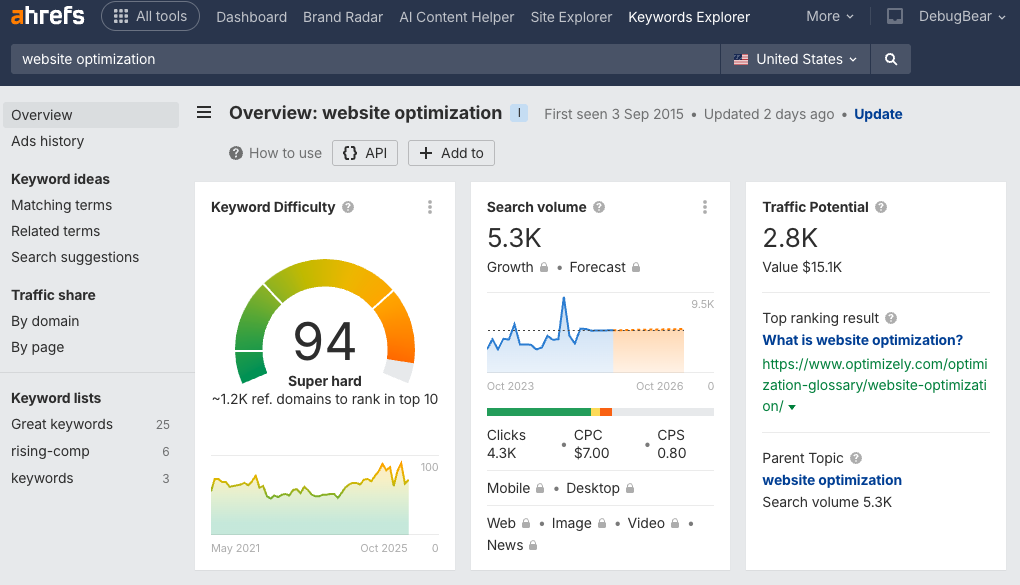
4. StatusGator
StatusGator can monitor your website uptime, but it's more focused on aggregating monitoring data for other services you rely on. When there's an outage your IT team and users can quickly get notified of the issue.
The product provides a unified status page for services you rely on and lets you receive alerts in the channels where your team already works, like Slack or Microsoft Teams.
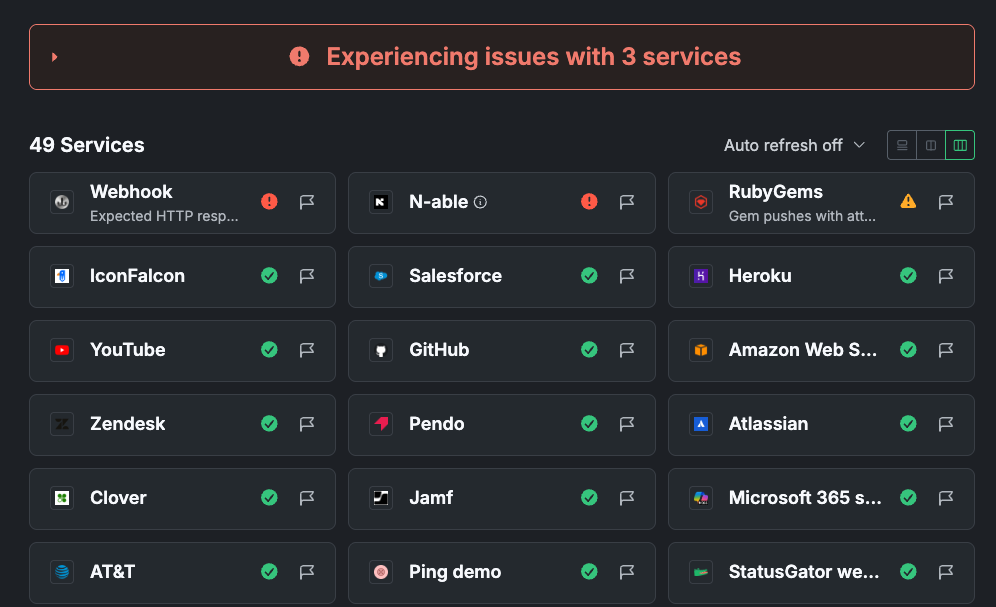
5. DataDog�
DataDog is a comprehensive application performance monitoring (APM) suite. It's a great fit for technical teams that need to cover all monitoring needs from network monitoring to log management.
You can test front-end page speed, backend performance, uptime, and transaction speed all in one tool.
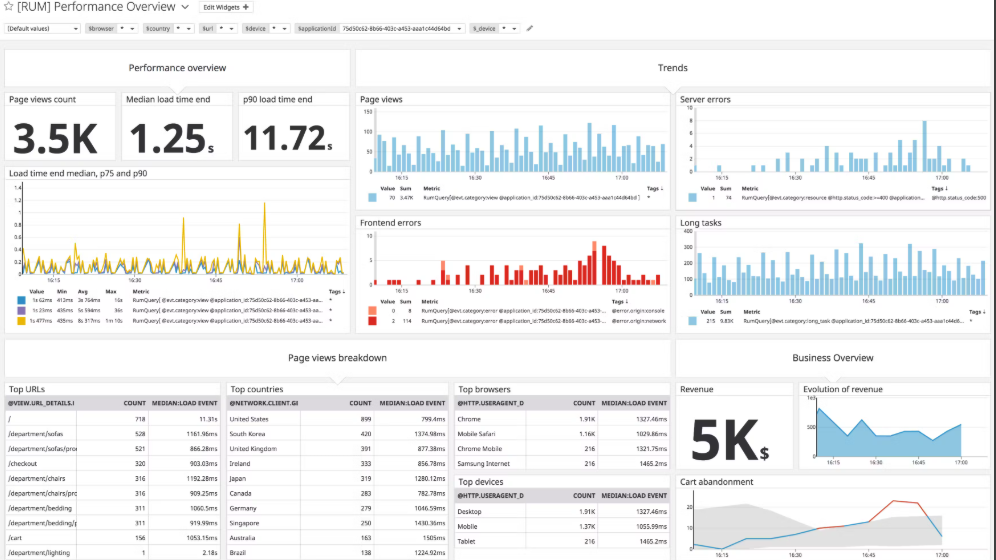
6. SEOTesting
SEOTesting tracks organic search traffic volume based on Google Search Console data. Get alerted to new keywords, pages that are declining in rankings, or new pages that were added to your website.
You can monitor clicks, impressions, and search result positions. By connecting Google Analytics data you also get insight into traffic that finds you via AI models like ChatGPT or Claude.
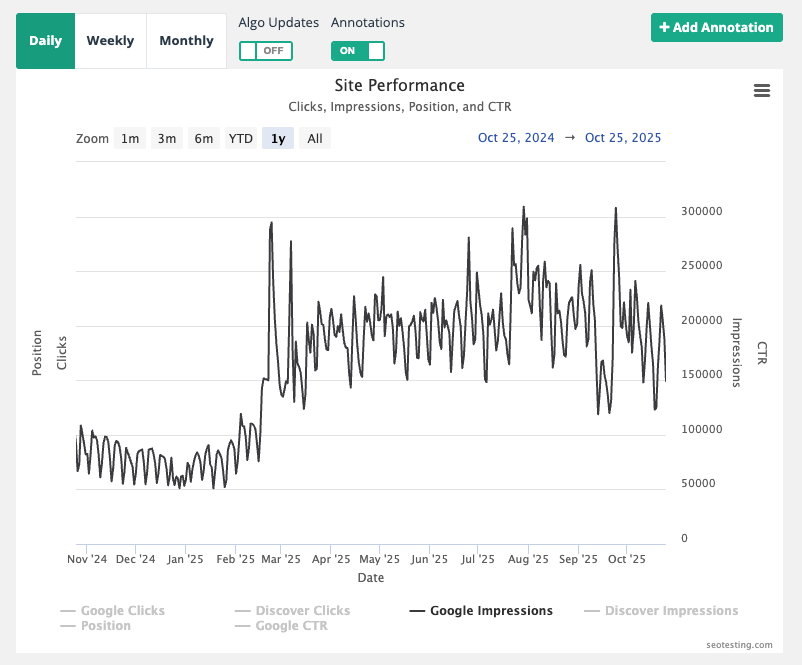
7. UptimeRobot
As the name suggests, UptimeRobot is a website monitoring service focused on uptime. Check that your website is working correctly and create public status pages for incident reporting.
UptimeRobot lets you monitor APIs, web pages, SSL status, and check that responses contain specific keywords.
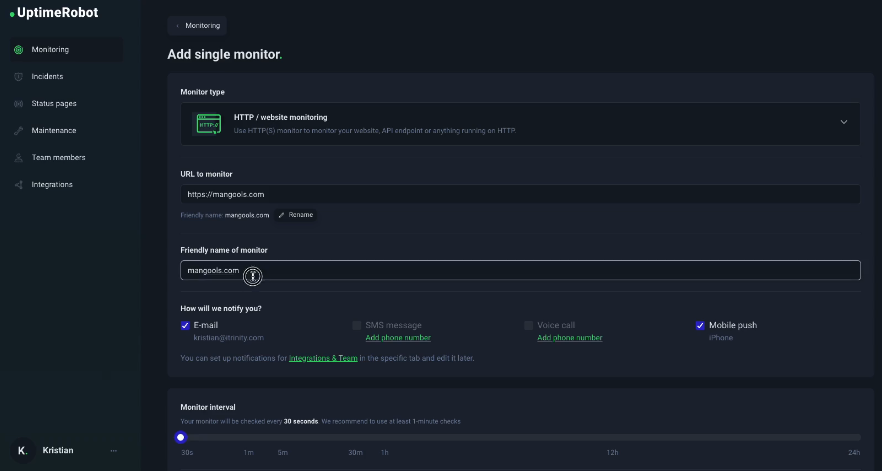
8. GTmetrix
GTmetrix lets you run scheduled synthetic page speed tests for your website. You can pick different test locations and set up alerting thresholds to find out about performance problems.

Check out this guide on how to interpret the GTmetrix speed test.
What is the best website monitoring tool?
What website monitoring tool is right for you? It depends on the needs of your company. For example:
- DebugBear is great if you need comprehensive web performance insights
- DataDog works for technical teams that need observability across their tech stack
- Pingdom is a more budget-friendly solution that provides the basics around essential monitoring features
Website monitoring features to look for
When comparing different website monitoring solutions, consider these factors:
- What types of monitoring does the tool support?
- Can you pick different monitoring locations?
- What performance metrics does the tool let you track?
- What test frequency can you schedule?
- Does the tool offer integrations or an API?
- How much historical data does the service store?
Monitoring website speed
If you care about website performance, try out DebugBear website monitoring to get detailed insight into how fast your website is for your visitors.
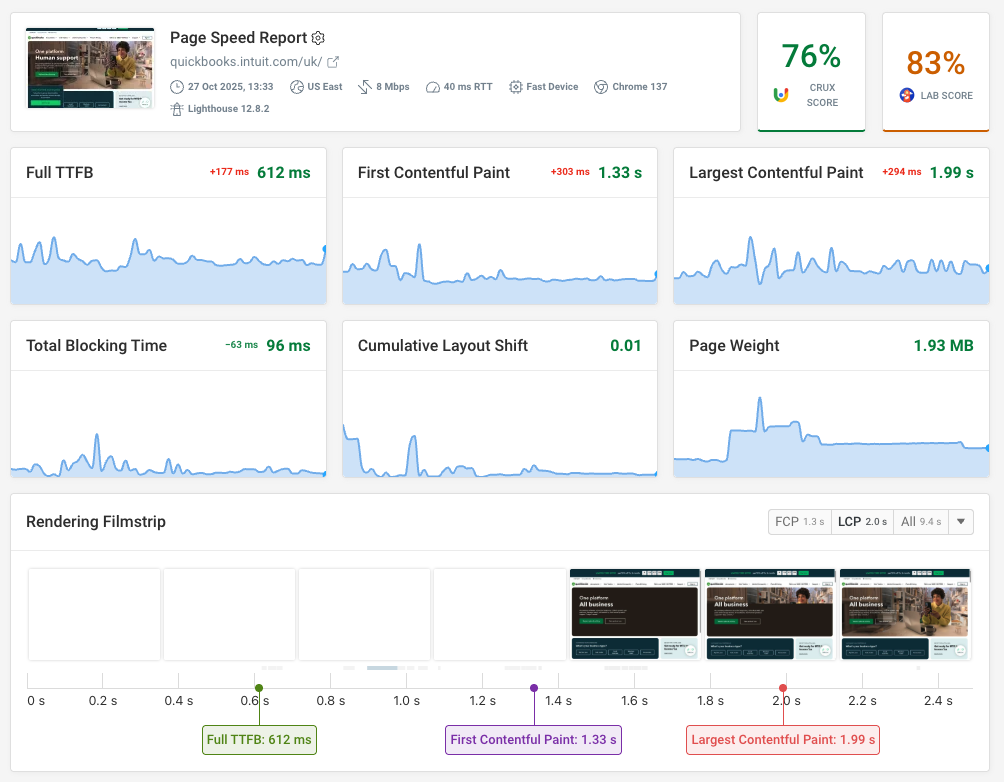
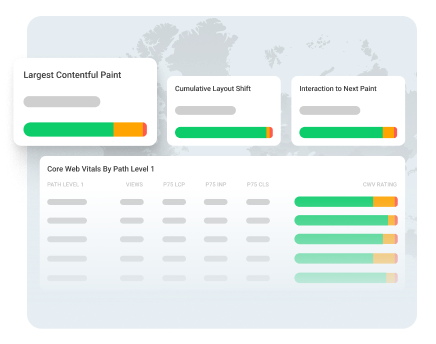
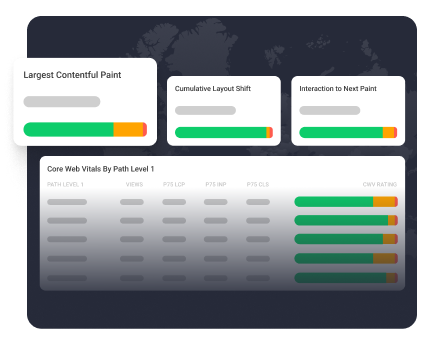
Monitor Page Speed & Core Web Vitals
DebugBear monitoring includes:
- In-depth Page Speed Reports
- Automated Recommendations
- Real User Analytics Data
